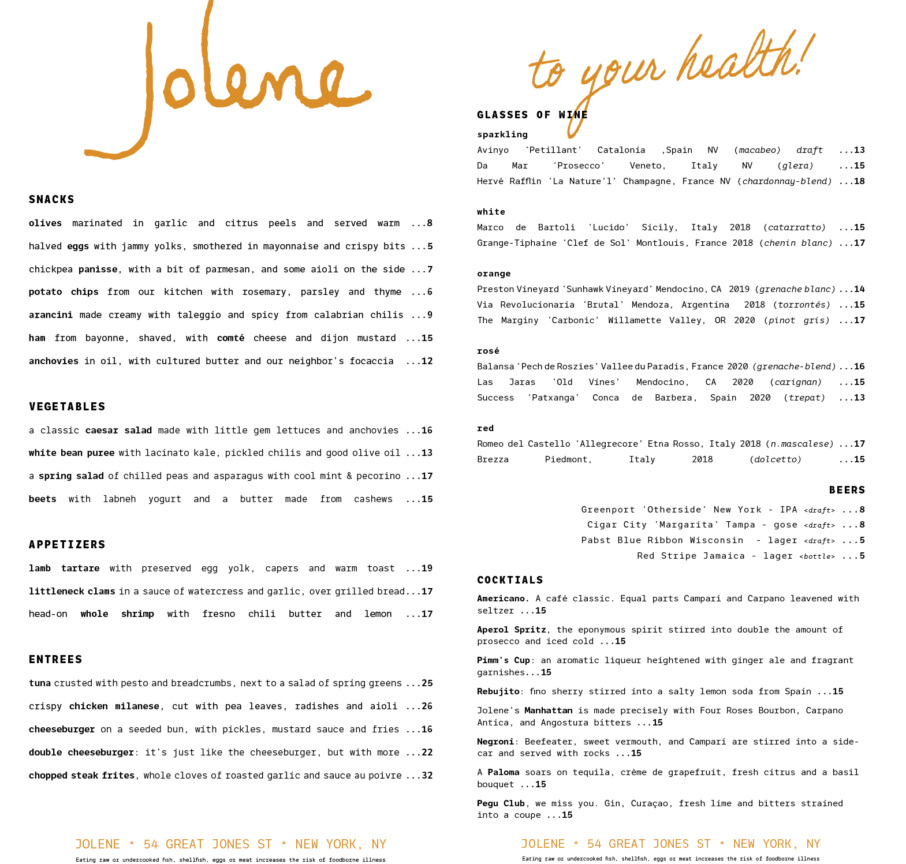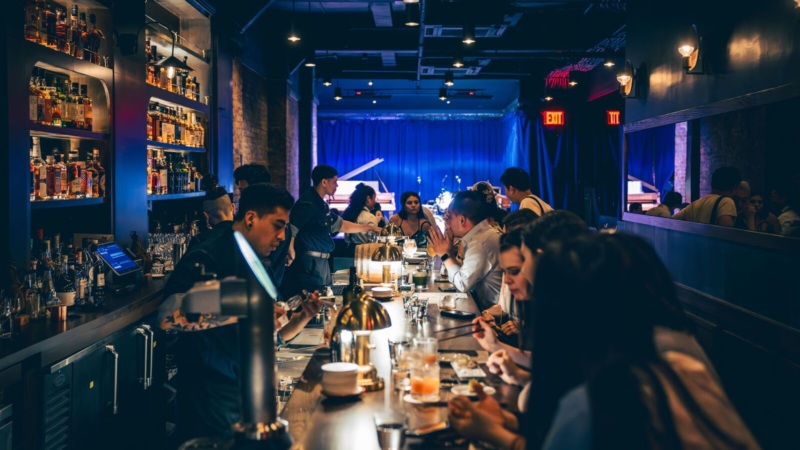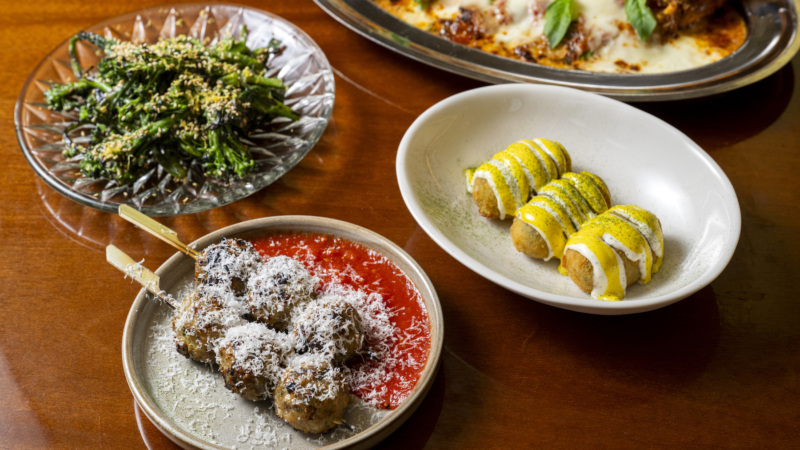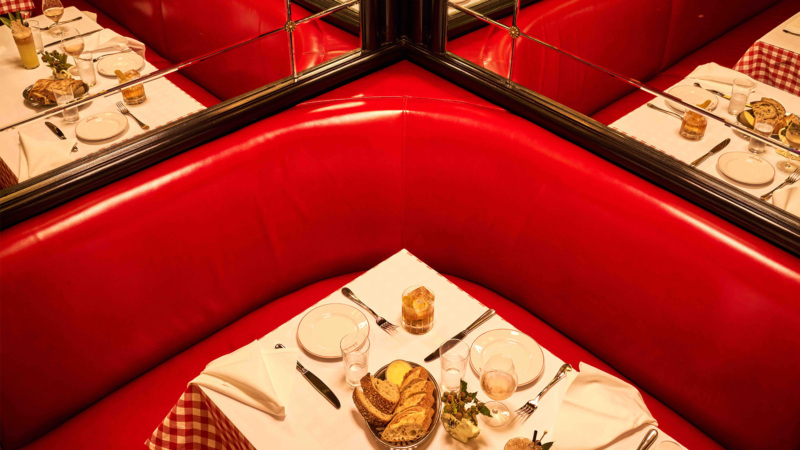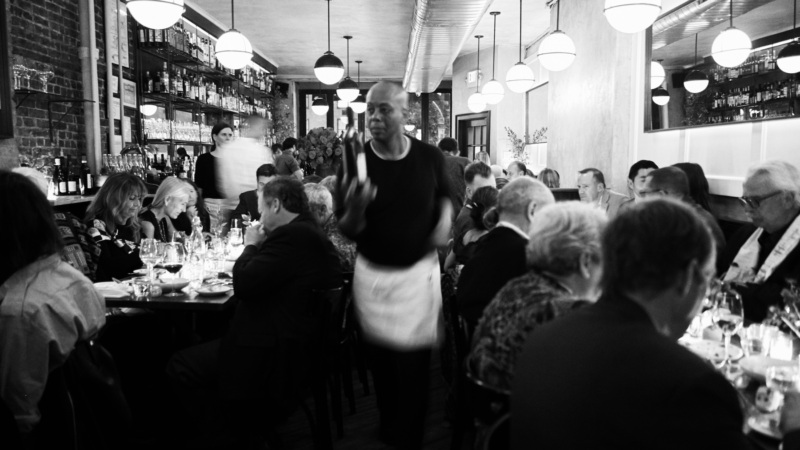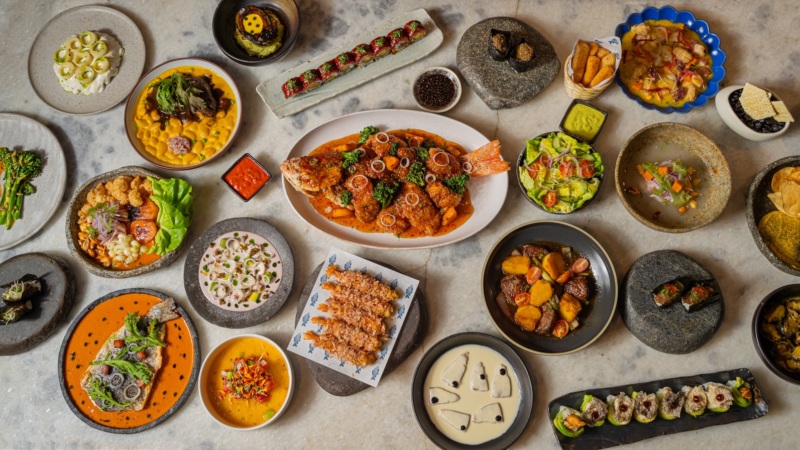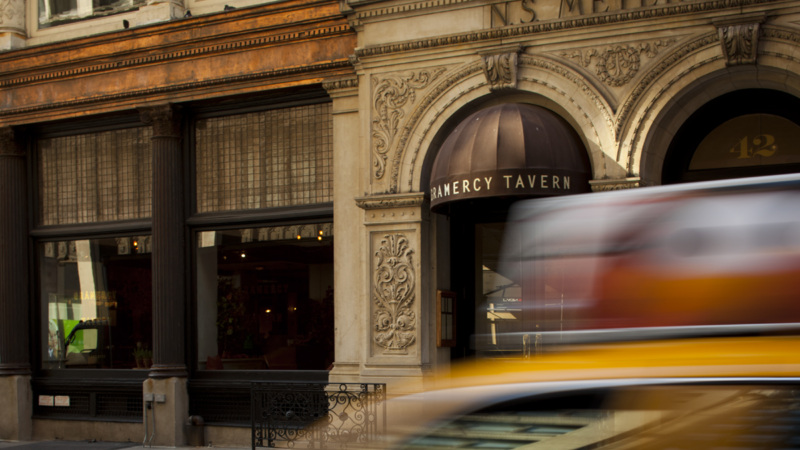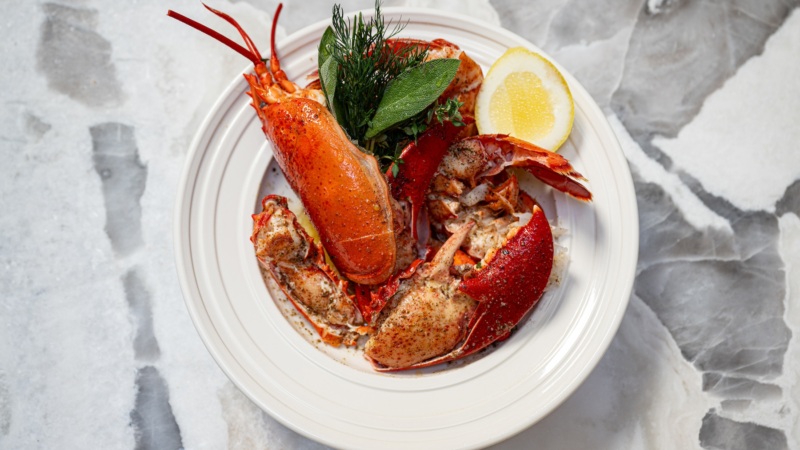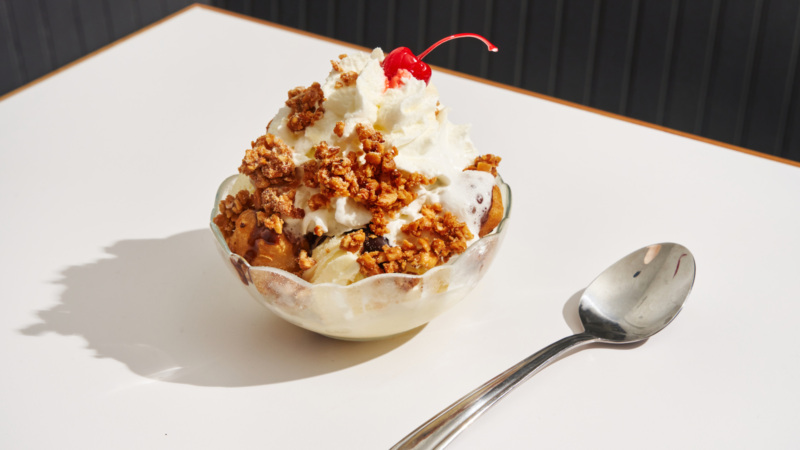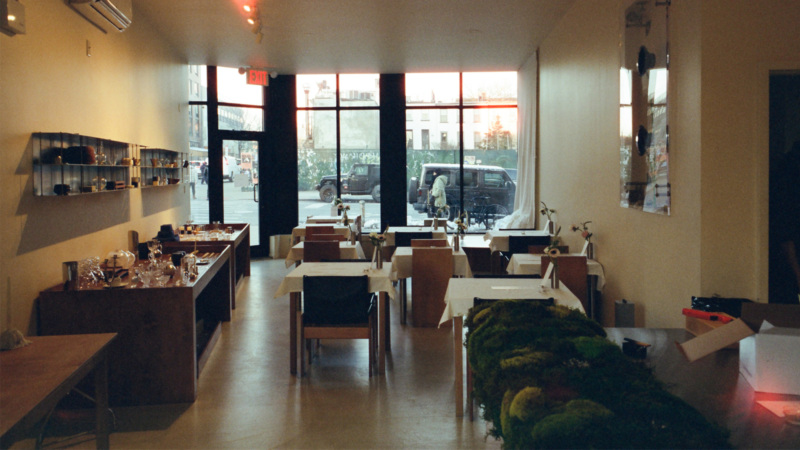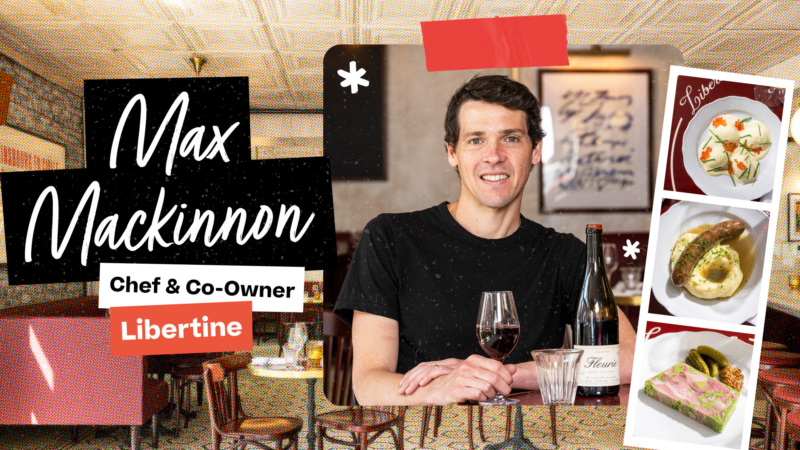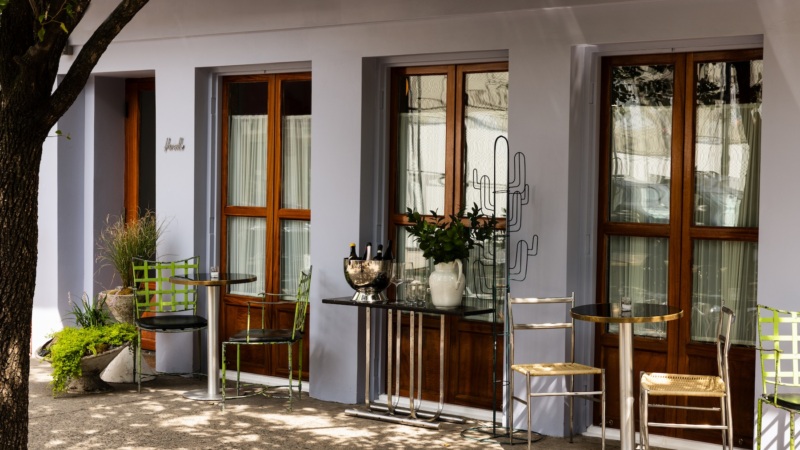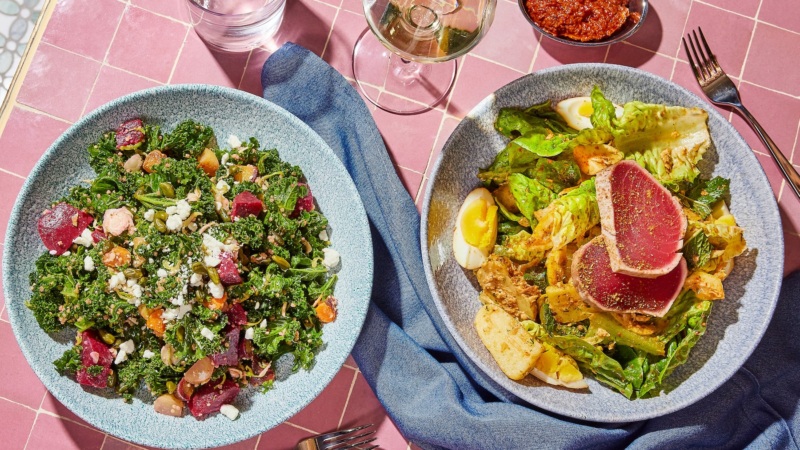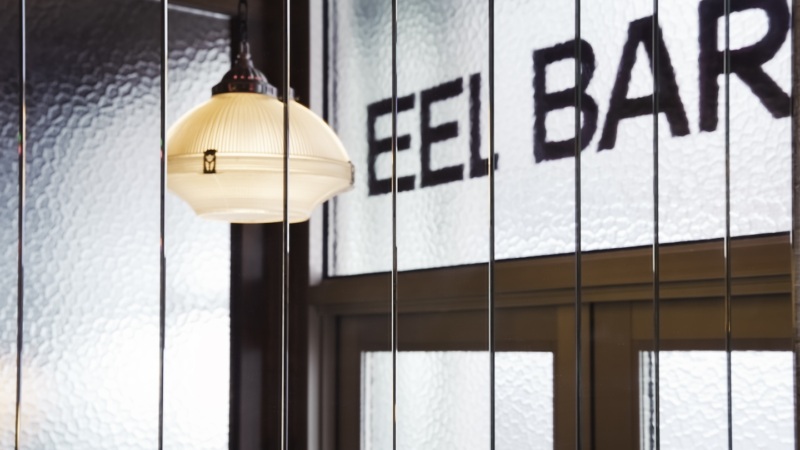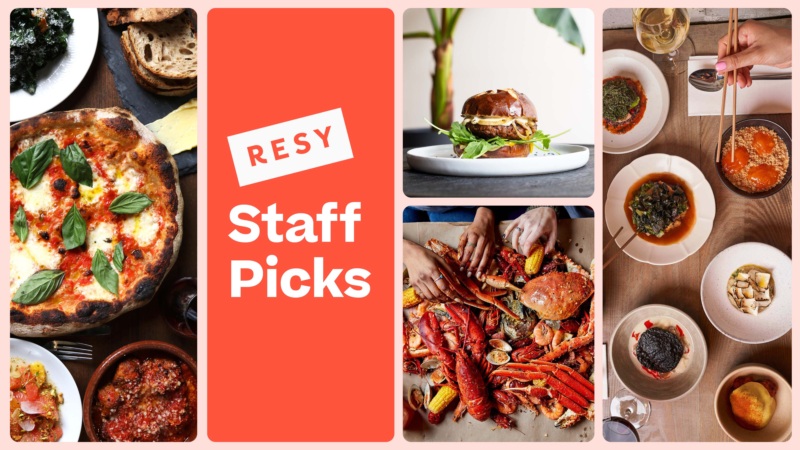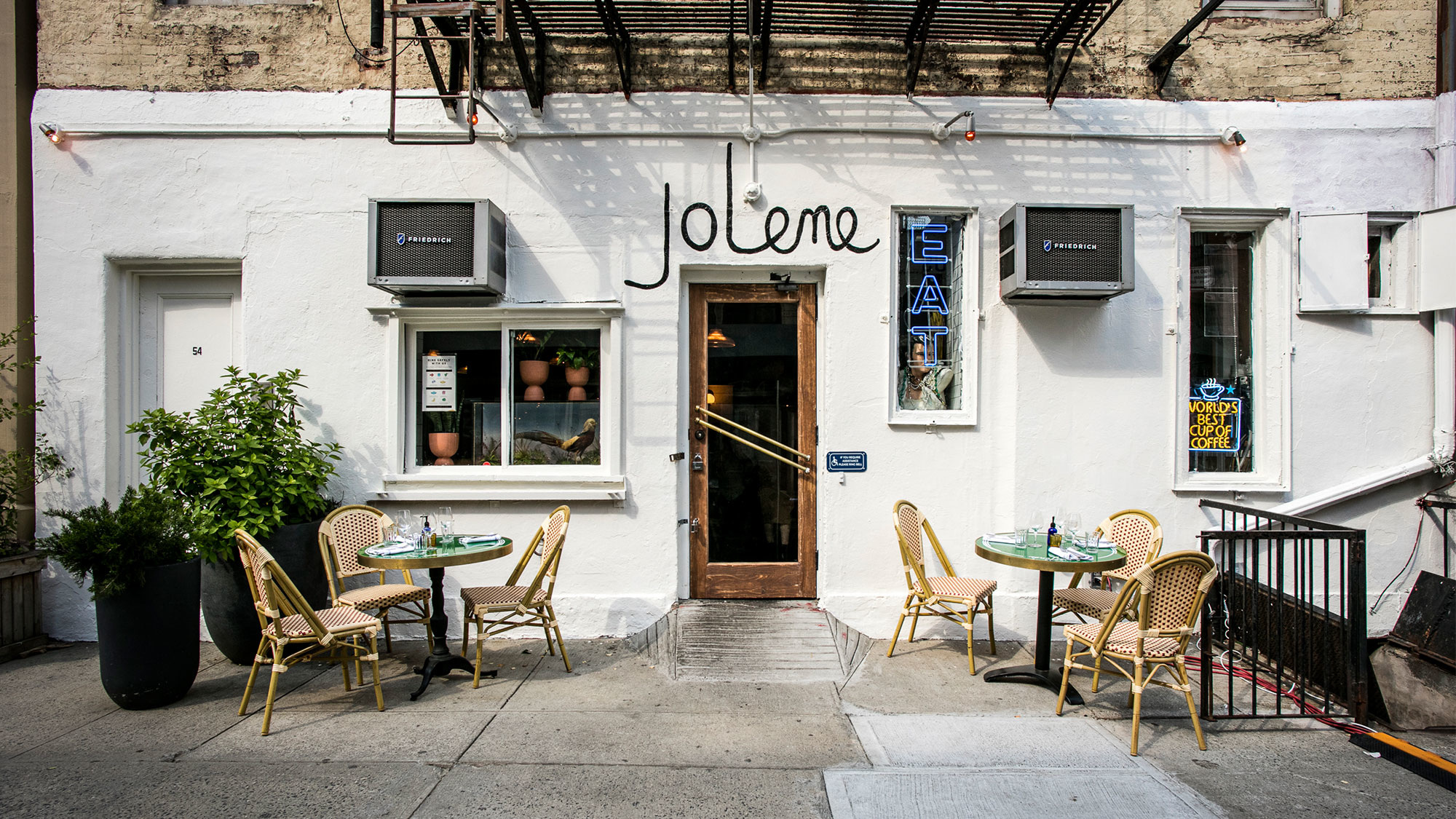
At Jolene, Gabriel Stulman Can’t Wait to Build the New York of Tomorrow
Throughout the course of the pandemic, New York City restaurateur Gabriel Stulman has publicly and nationally advocated for industry-wide financial relief, and a larger cultural overhaul, all while his beloved restaurant group went from nine restaurants to four active restaurants. In August 2020, he was forced to shutter cherished local hotspot Bar Sardine. One month later, Fedora followed.
But despite the hardship and heartbreak, Stulman remains hopeful. Here, he shares his dreams of a better industry and what the New York of tomorrow looks like, best encapsulated in his latest restaurant — Jolene, opening today in the former Jones space.
Resy: The last time you spoke to Resy was almost exactly a year ago. You actively talked about and fought for PPP loans, rent negotiations, and better financial relief for restaurants overall. How do you feel about the industry now, one year later?
Stulman: That’s an easy question with a very layered answer. There’s lots of different ways to approach that question. One way is looking back, one way is looking at the present, and one way is looking forward.
Looking back, I am very proud of our industry. Because our industry showed a lot of grit. Our industry was powerful in their efforts to find ways to serve their communities, to take care of their staff— and this is not an absolute, I’m not saying every restaurant did this. But there are a lot of great stories out there, restaurants, coalitions, and hospitality groups that did amazing things, feeding frontline workers, feeding their teams and advocating.
- Five Things You Need to Know About Vallata, Tom Colicchio’s Latest Project
- ‘As Long as Sylvia’s is Open, the Marquee Will be Lit.’ How the Harlem Legend Has Endured
- The Wine Hit List, Early Summer Edition
- New on Resy: It’s Reopening Season
- The May Hit List: Ssäm Bar, Stretch, Cervo’s, Cosme, Porcelain, and More
Also, society as a whole, not just our industry, had a massive intersection of societal things that are separate from the pandemic. I’m happy to see conversations coming to the surface about people of color. A lot of it is being talked about in the food media world, right? Whether we’re talking about podcasts, or publications, or different awards groups. A lot of them got called out on basically being whitewashed, and [are] doing a lot of introspection on how much shine are they giving to non-white people.
Also, throughout all of this, we had a very divisive election. It is nuts to think about the pandemic and this election between Trump and Biden happening at the same time. That’s a lot! And I was so proud of our industry and how they got very politically active and involved in voter registration, grassroots organizations, making phone calls. I’m mad proud. That’s one way to answer what is the status of our industry.
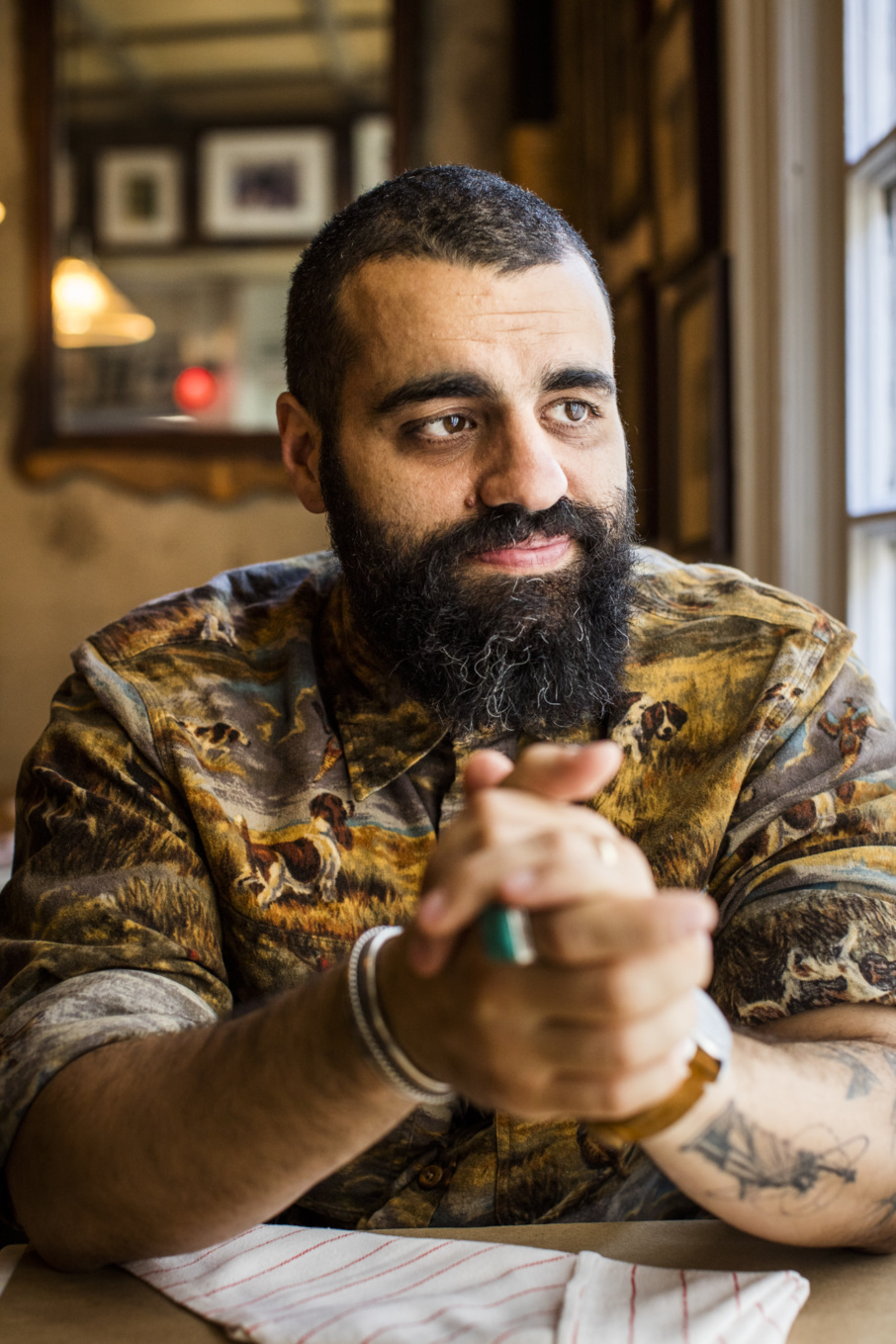
And what about the state of the industry today and going forward?
I would say our industry is rattled. A lot of businesses are not coming back. What percentage is that, I don’t know. How many thousands of restaurants that closed that are not going to return, I don’t know. But I know it’s a lot. And that’s sad. We’re shook up.
And then, how do I feel about the future? I’m super excited. I think this is the most exciting time for New York City. I think we are at a moment where we, the people on the ground, are going to be defining and shaping the New York of tomorrow. We are writing it and molding it like sculptors, we are shaping [it] like clay in our hands.
I’m talking about the next two years of Broadway and theatre. The next six months to six years of music that will be released. All of the writing that is to be shared and distributed. And all of this, the intersection of that, it’s going to happen across tables at restaurants. It is going to be restaurants that bring people together again, [where] we share these ideas of art, theatre, music, writing, politics, and business.
What does the New York of tomorrow look like for restaurants?
We’re at this moment where we can go back to the table and [have] conversations about tipping and eliminating it, the 80-20 rule and the inaccuracies in it, and the rules that exist in New York that govern restaurants that don’t govern them in the rest of the country. How diverse our teams are, what is our work-life balance, and what are our goals? And honestly, what role should media be playing, and what should media be valuing?
How many Best Of lists have we created? And why are we defining restaurants by best cocktail, best this dish, best that dish, best burger, best slice, best taco? Like, why are we not saying best culture? Best energy? Best service? If we keep saying the only thing that matters is that you get an award for this or that, then the media is perpetuating what operators feel is valued, what they chase after, and what they prioritize. The media should be as introspective as our industry. It’s an awakening across the board. Media is having an awakening of who they give voices to, as they should.
And what restaurateurs should be doing, is saying: how much are we paying people; how much can we pay people? How much should we be charging guests; how much can we charge guests? What should be the right number of hours in a work week? Who should our leadership be? What should our teams look like? What should our values be? Is our value best food and best drink by any means necessary? Or are our values meaningful work, meaningful relationships, love, friendship, kindness, warmth, integrity?
I think people are having these conversations. I know I am, and I know my team is, and it excites me. I’m fired up for the dialogues that are happening today in my circle. And I couldn’t be more thrilled to be shaping the New York of tomorrow.
When did you know you wanted to pivot away from the Jones and turn it into Jolene?
I would probably say right around when indoor dining got closed for the second time, December 1. What we saw during that summer, [was] how busy the different places were. All of our West Village restaurants — Joseph Leonard, Jeffrey’s Grocery, Fairfax, Bar Sardine [which closed in August 2020] — were doing more business than the Jones. All places were equal in the sense that they all only had sidewalk cafés, but those restaurants were busier. We began to try to analyze and diagnose why. And I believe it’s a lot of reasons why.
One, the neighborhood. There is more foot traffic in the West Village than there is on Great Jones Street. Number two, and very important, all of the West Village restaurants ranged from eight years old to the oldest being 12. They were firmly rooted and established businesses that had neighborhoods, regulars, and followers. The Jones was six months old before the pandemic hit. It had not rooted itself in its community. We made the decision on Thanksgiving: Let’s just close the Jones until indoor comes back, or when it’s spring and it’s warm. And during that time, I began a deeper kind of analyzing and introspective reflection.
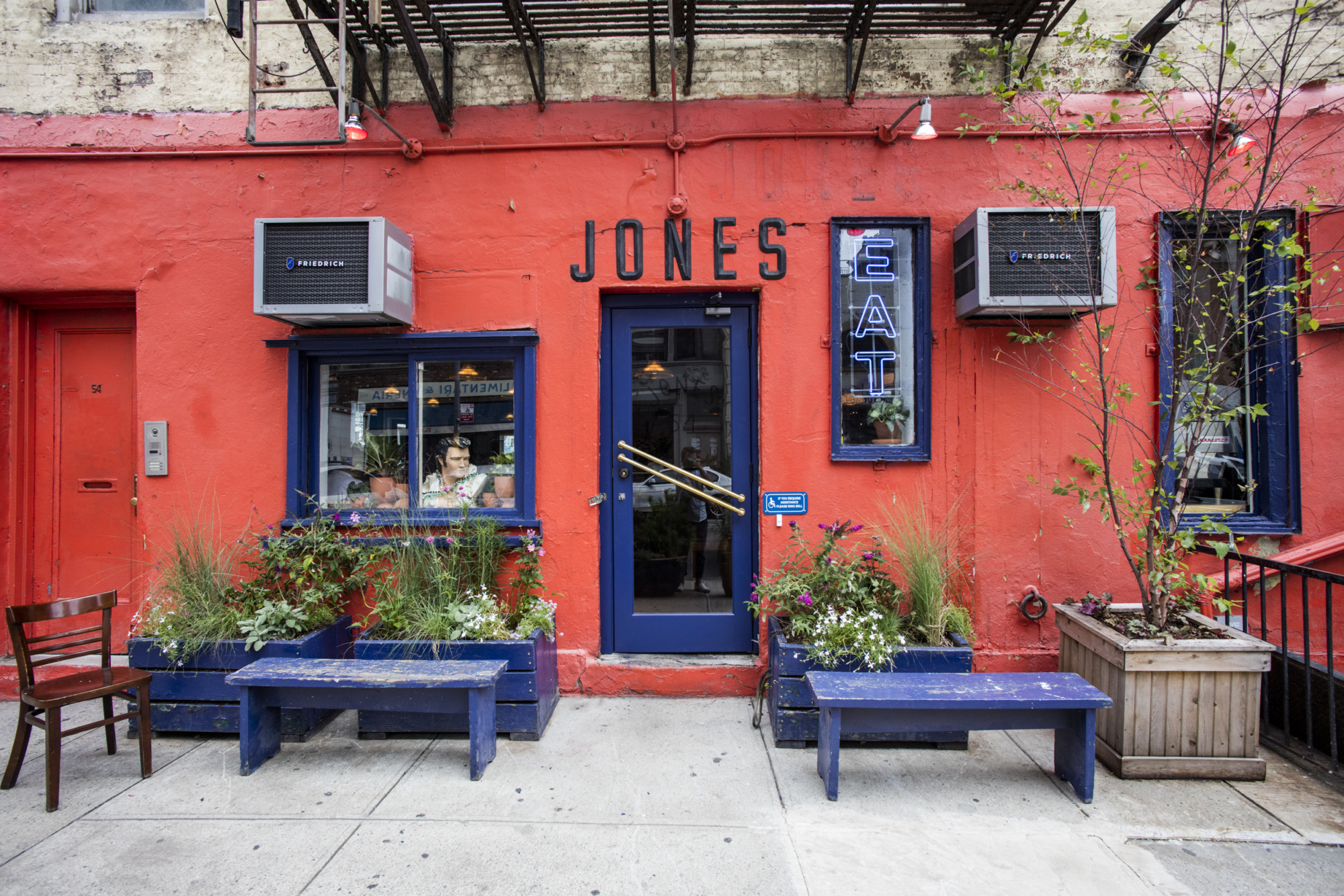
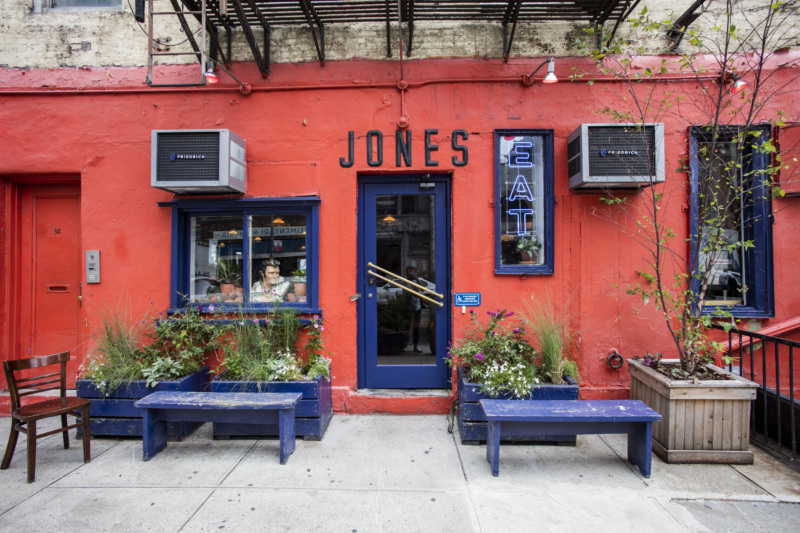
Why did the Jones not work? I think part of the reason why is because a lot of the things I wanted to be sentimental about ultimately worked against us. I loved that the building had this orange and blue exterior, because the original owner from 1983 was a major New York Mets fan. And it was iconic. I was like, we gotta keep the name “The Jones” because it was the Jones for 35 years and people say they love it! So, when we took over, I said we’re going to keep the name and we’re going to keep the orange. As we reopened during the pandemic, we started serving neighbors that had lived on the block for 15-20 years, they were like, “Oh, this is different, it’s not the old Great Jones.” And we were like, yeah, no, we changed it like nine months ago. And they go, “Oh, I didn’t know.” And then I sit there, and I got to look at myself and take responsibility for that. You walk down the street, you see the same beat-up orange, the same letters outside, you see the same Elvis in the window, and you are supposed to know that it’s different? Maybe all of my sentimentality worked against me. And all of the reasons I wanted to hold onto the past made everybody who walked by have no idea that it was something new.
I started thinking: Whenever we reopen, what will serve us best? Will it serve us best to start anew? Will it serve us best to try to tell a story about a business that we opened six months before the pandemic? Or is it better to say goodbye to yesterday, and build the New York of tomorrow? And I landed on let’s build New York of tomorrow, let’s stop holding onto a business. It’s time to change.
When we opened the Jones, we had 30 seats inside and three tables for 2 outside. Now, because of Open Streets and unique circumstances where the owner owns the adjacent building and has given us permission to use part of his space as well, we now have 40 or 50 seats outside. And once we’re fully open inside, we’ll have 30 inside again. The restaurant is much larger. And you start to think about that kind of energy. It’s a different restaurant, and if it has this DNA, and this makeup, and this seating, what kind of a place would I imagine? What would I dream about?
I listened, reflected upon, and learned the way the Jones was operating and what I thought its future prospect was throughout the pandemic. And it was throughout all of that that I came to the conclusion that it was time to start anew.
And how did that translate to Jolene?
I would call it an American café and bistro. A north star for us is the kind of energy in Spain, Italy, France, those places like Café de Flore [in Paris]. At Café de Flore, one table can be just having coffee, the table right next to them can be having a full three-course meal, and the table next to them can be having a glass of white wine and a martini. And you see all of this happening, table-side by side by side.
That’s not the way New York or Americans operate. We divide those things. We have our coffeeshops that we go to for coffee, and wherever you for your coffee is not the place you’re getting your martini or your bottle of white wine.
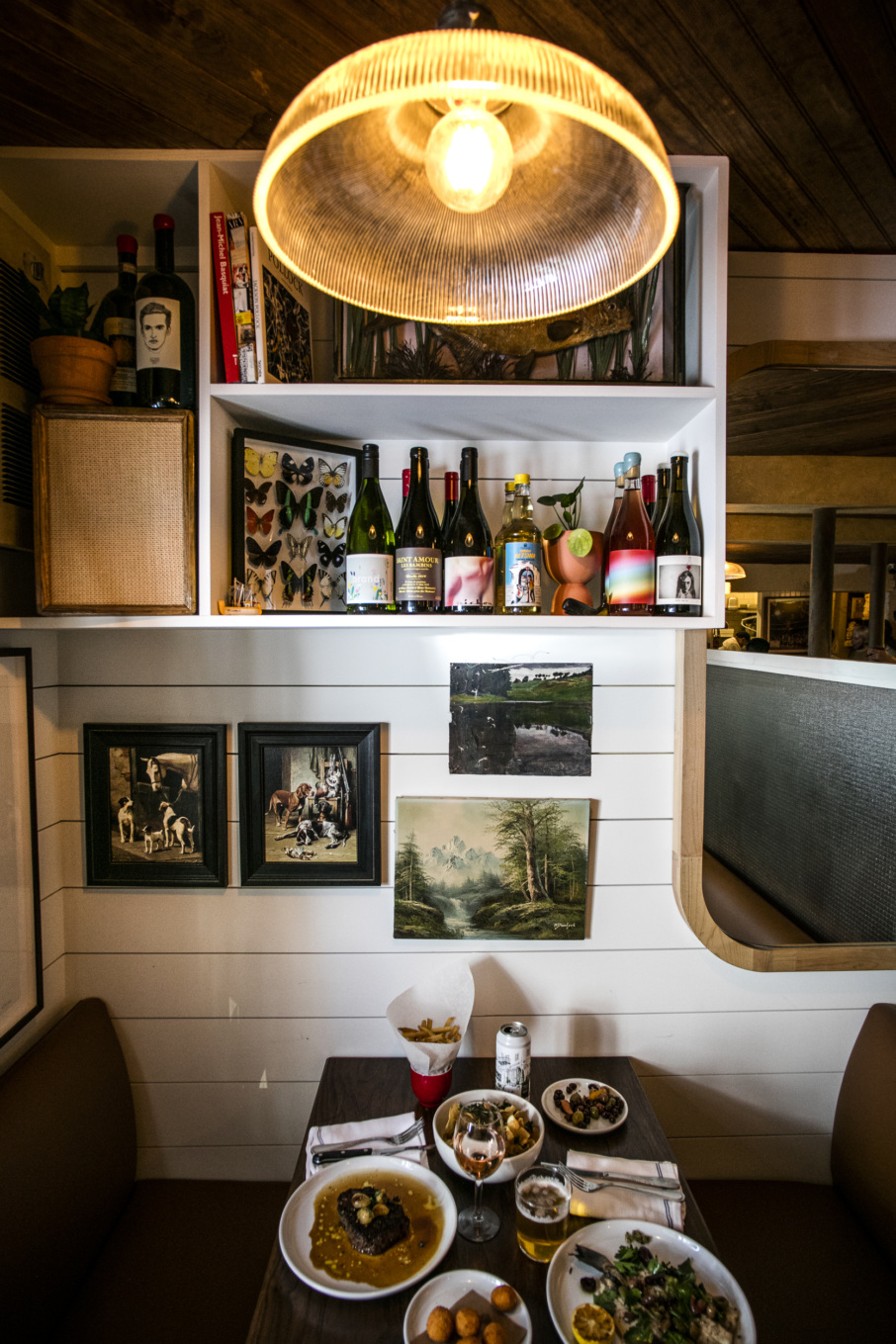
And then we have our restaurants, which have amazing coffee programs and amazing cocktail programs, but they preference diners. I say this about my own restaurants, all of my peers’ restaurants. You’re not going to any of the popular, buzzy restaurants on a Friday night at 9 p.m. as a party of four, saying, “Hey, we don’t want to eat, we already had dinner, can we just get the corner table and have a bottle of wine?” What happens in most of the restaurants is, “Oh, I’m so sorry, it’s reserved for diners, I have a waitlist.” They don’t give you prime real estate to just have drinks. They prioritize diners because it’s a higher check average.
We don’t have places like they do in Europe where it’s all happening side by side. And that is my north star, that is my inspiration, that is my promise. That’s what I want to achieve with Jolene. I want it to be a place where the answer is yes. If you’re coming by and you just want to have some drinks, we can make that happen. If you’re coming by and you just want to have a coffee, we can make that happen. If you’re coming by and you want to have a full dinner, we can make that happen. If you want to come and have a bottle of wine and then an hour later, be like, oh we got hungry, we can make that happen.
I want to have that kind of easy-living lifestyle of those European cafés and bistros.
What’s the story behind the restaurant’s name?
Most obvious, I think, is Dolly Parton. She is a very impressive person in terms of her philanthropy, her activism, her musical talents, her songwriting — she’s a badass businesswoman. I just think she’s awesome, so it’s a tip of the hat to one of her famous songs. Also, Dolly donated a lot of her own money towards Covid vaccination research. That’s one reason.
Another reason: When we started our company years ago and had four restaurants only, two restaurants were named after patriarchs of my family and two of our restaurants were named after matriarchs. The first restaurant that I opened was Joseph Leonard, named after my two grandfathers. My second restaurant is Jeffrey’s Grocery, Jeffrey is my father. Third restaurant that I had was Fedora — although Fedora is not a blood relative, it was named after the original owner, a woman, and a matriarch in her family. And the fourth restaurant that I opened was called Perla, which is my grandmother.
Fast-forward to the end of this pandemic, all of the restaurants that I had named after matriarchs no longer exist for different reasons. But I still have the two that were named after patriarchs. So, here’s a way to bring that feminine energy back that we’ve always honored.
And then lastly, just super, super basic: I like the way it sounds. I think it just rolls off the tongue. I can totally see myself going, “Hey, do you want to go and grab drinks at Jolene?”
Do you have any favorite dishes on the menu?
Hm, can’t play that game. No, it’s a huge menu, I don’t have a favorite dish! I think what is so great about the menu is the way we structured it.
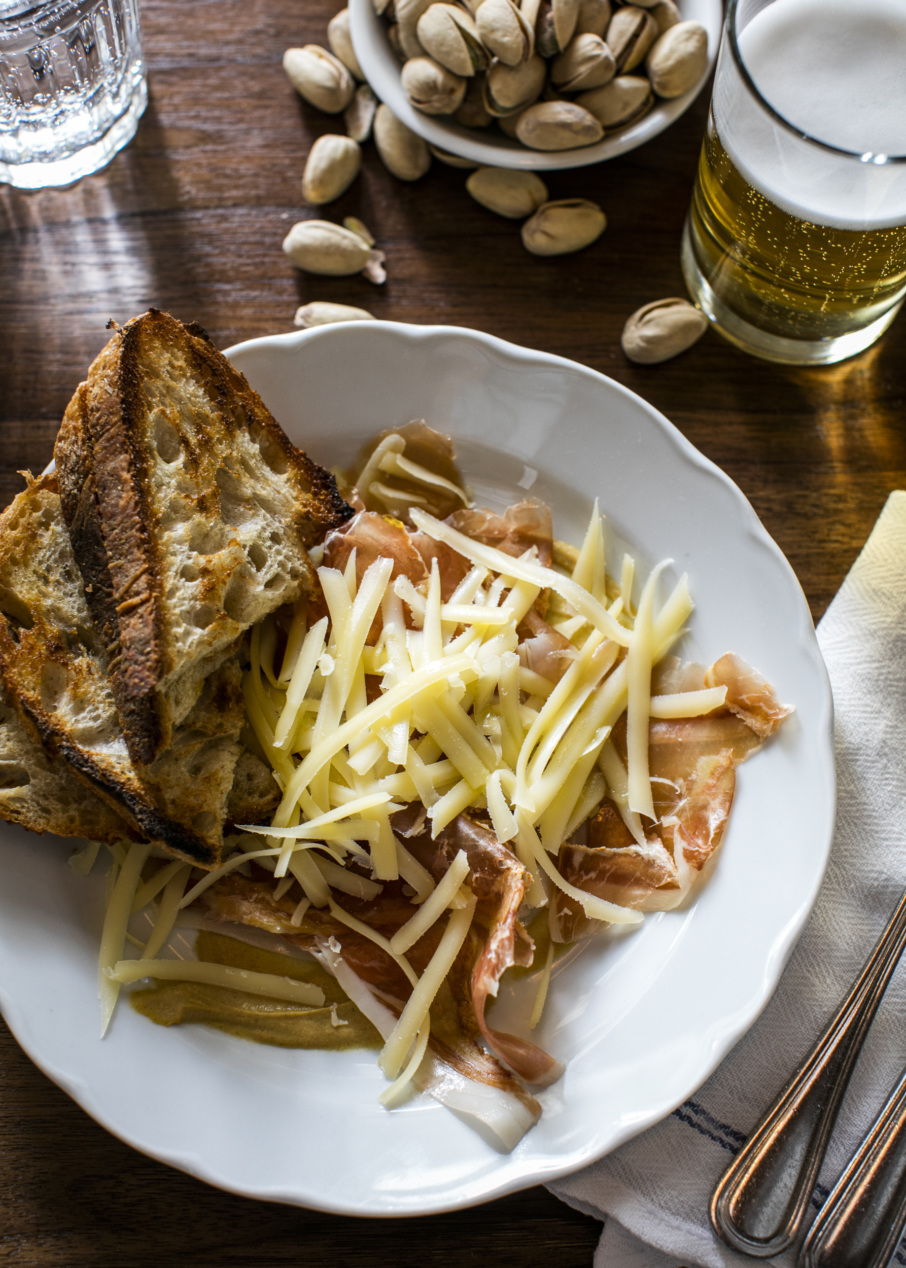
We have a very large snack section that has oysters or eggs mayonnaise or anchovies or Parmesan panisse. It’s got all of these finger foods, salty, easy, like some French ham with comté. I love eating like that. Then we have two sections that are the size of appetizers: Cold vegetables — like pea and asparagus with pecorino, or beets with labneh and cashew butter — and then we have another section called appetizers, which lead with proteins — like lamb tartare or clams in an escargot style. And we have an entrée section with a cheeseburger, a chicken Milanese, a whole fish, a tuna steak with pesto.
I love that the menu is set up in a way that really hits that laissez-faire, easy living café energy that I thrive in chasing.
It’s a restaurant for all occasions.
That’s the beauty of Café de Flore. It’s [open] 8 a.m. to 1 a.m. and I’ve used it in all of those different time slots in my travels to Paris. That’s the idea: Set the menu up in a way where you can use it how you want to use it. And it’s got all of the options.
If you could invite anyone in the entire world to the restaurant, who would it be?
Man, what a good question. Wow, my knee-jerk — and this is probably not well thought out enough — is LeBron James. Because I really admire this guy’s activism. I mean, he built a school for thousands of kids in the underserved community that he grew up in, where he’s providing uniforms, meals, bicycles for transportation if that’s a problem, breakfast, lunch, and dinner if you are at need. And I look at everything this guy did during the election, starting the foundation More Than a Vote, his willingness to speak up about social injustices and not be quiet just to maintain his endorsement deals. He’s a very socially active individual and this guy has had a microscope and spotlight on him since he was 16. He’s seemingly just a good freaking human who is taking his platform and not just rising to the expectations — which were set insanely high — but has risen above and beyond. He’s magnanimous. I’m in mad awe of him and all the things he’s achieved.
So, what’s it been like opening a brand-new restaurant as New York is coming back to life?
You’ll have to ask that question in two months.
Jolene is currently open Tuesday through Saturday for dinner for indoor and outdoor dining. Stay tuned for weekend brunch and Friday lunch.
Discover More
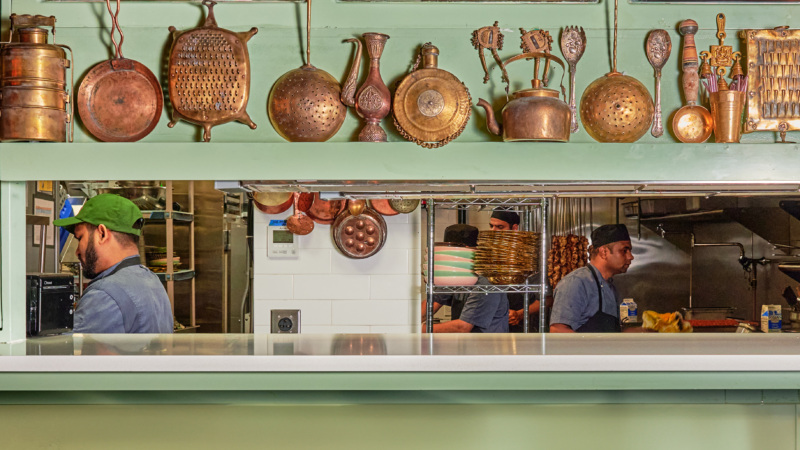
Stephen Satterfield's Corner Table

